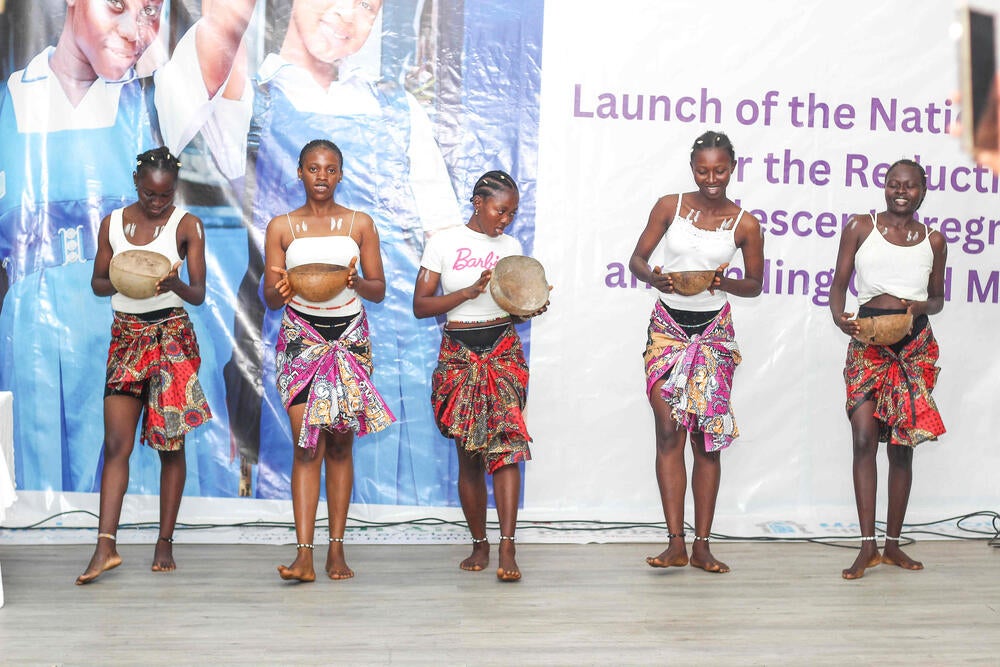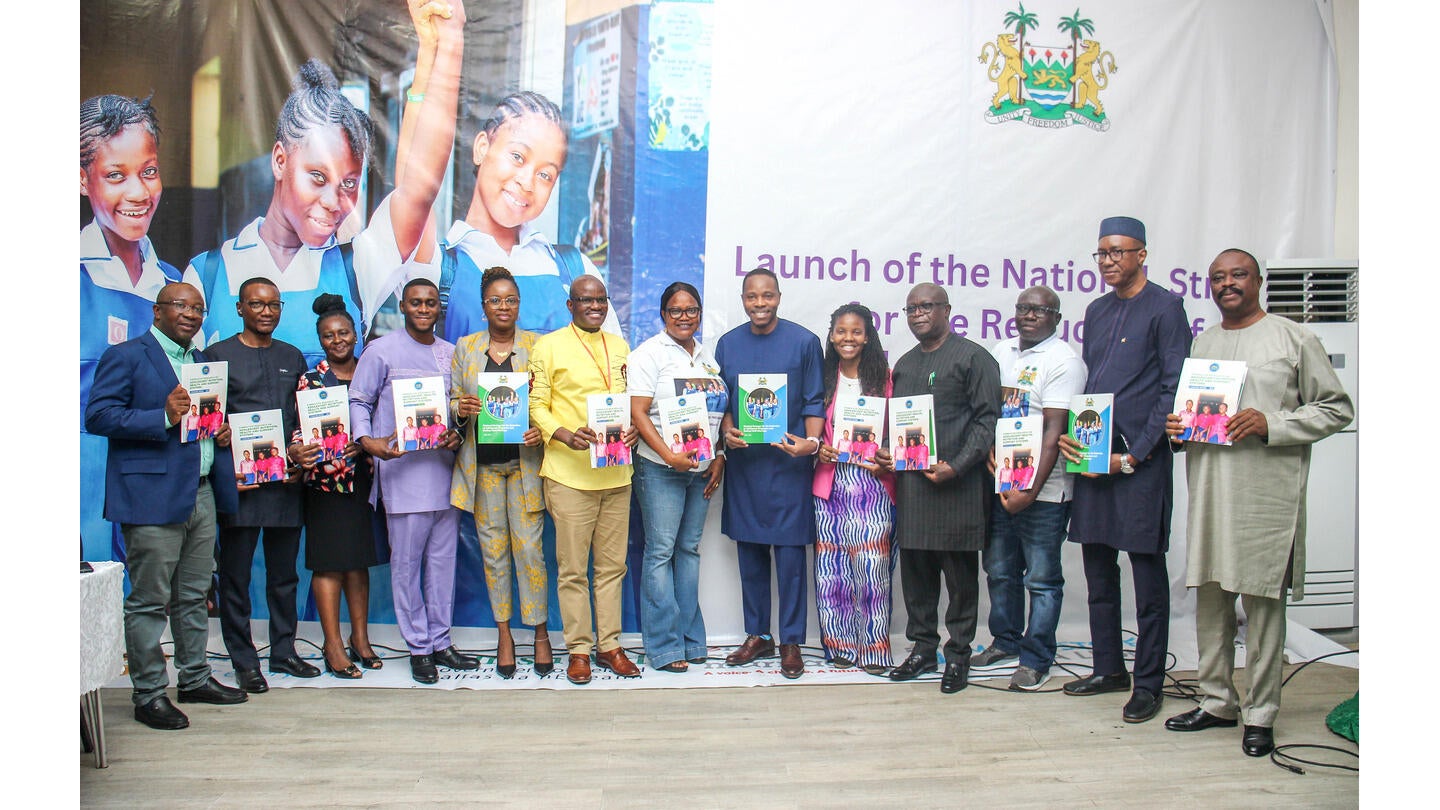FREETOWN, Sierra Leone, 20 February 2025 - The Government of Sierra Leone, through the National Secretariat for the Reduction of Teenage Pregnancy and Child Marriage and line Ministries, in partnership with the United Nations Population Fund (UNFPA) and the United Nations Children’s Fund (UNICEF), launched the National Strategy for the Reduction of Adolescent Pregnancy and Ending Child Marriage (2025-2030). The strategy, developed with financial support from the Embassy of Ireland, was officially launched by Chief Minister Dr. David Sengeh and brought together stakeholders from various line Ministries, adolescent girls, CSOs, and development partners to drive a coordinated, evidence-based response to reduce adolescent pregnancy and end child marriage
Officially launching the strategy, Dr. Sengeh emphasized the importance of collaboration in implementing progressive policies and strategies to benefit the most vulnerable girls in society. He indicated that the agenda of radical inclusion had been enshrined in the law of Sierra Leone through the Education Act 2023, thus empowering girls with the right to reproductive health. He further noted that the strategy reflects a comprehensive, government-wide commitment to supporting adolescents who are the backbone of Sierra Leone’s society.
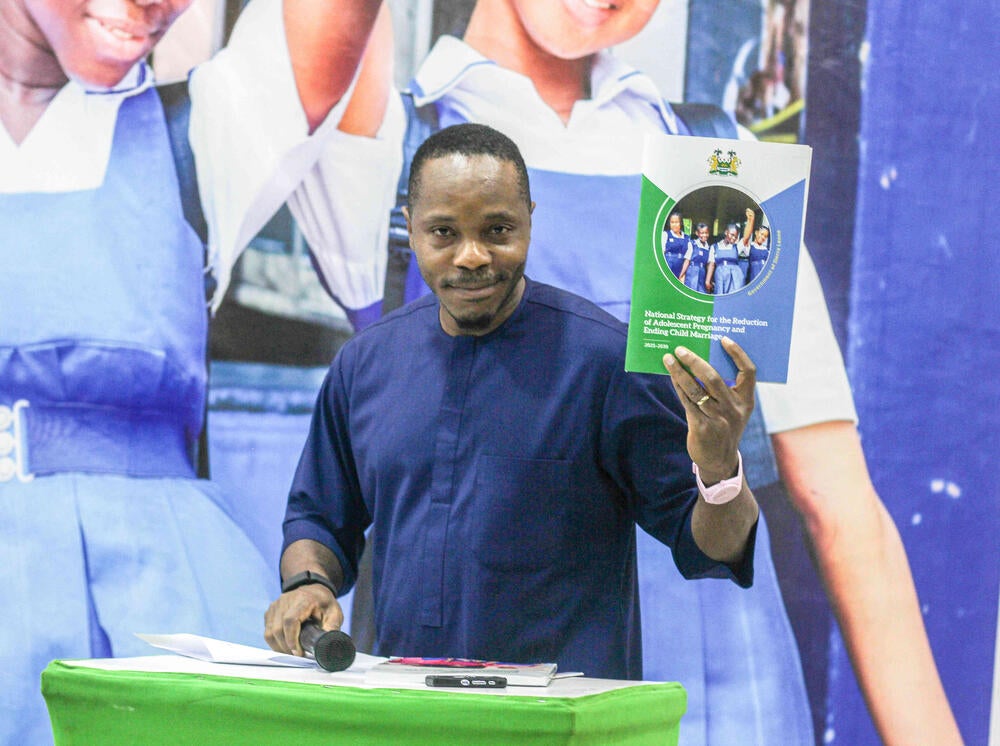
Minister of Local Government and Rural Development Tamba Lamina expressed his ministry’s commitment to ensuring that interventions reach even the most remote communities. He affirmed the ministry’s support in coordinating the strategy at all levels.
National Coordinator for the National Secretariat for the Reduction of Adolescent Pregnancy and Child Marriage, Dr. Patricia Bah, gave an overview of the new strategy and highlighted that its development was based on nationwide consultations and informed by lessons and evidence from the implementation of the last two strategies. These consultations ensured that the strategy is specific to the context of Sierra Leone and the needs of community stakeholders, service providers, parents, and most importantly, adolescent girls and boys. The strategy consists of six pillars:
- Policy and legal environment
- Public Health
- Enabling learning environment
- Community engagement and ownership
- Social Assistance and Livelihoods
- Leadership, Coordination, and Research
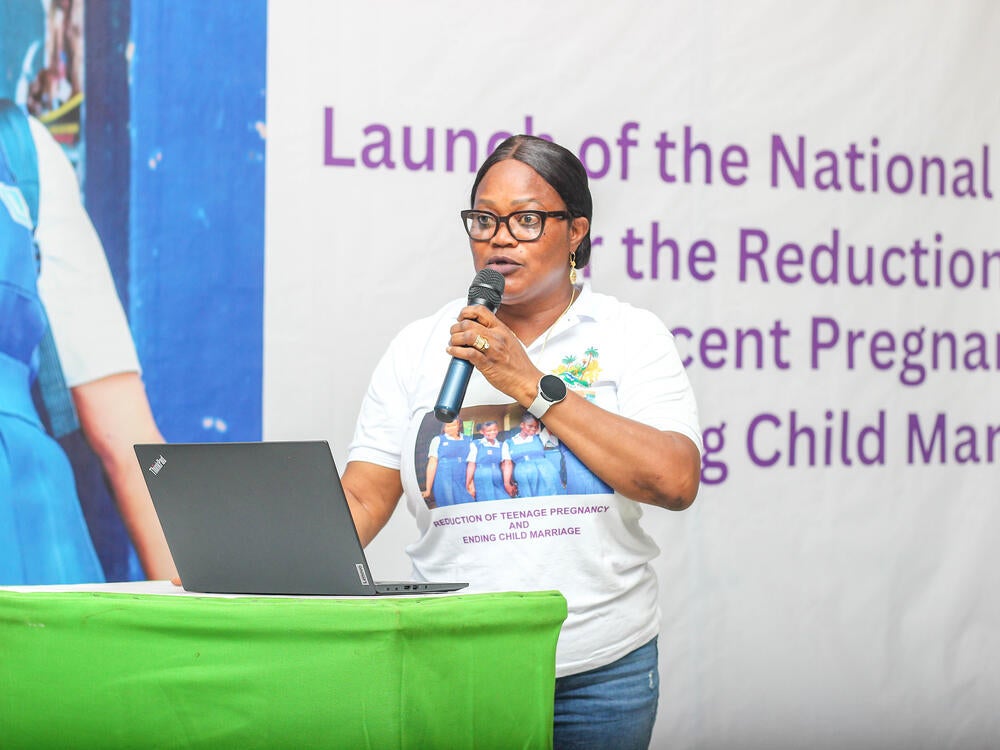
Dr. Bah noted that the multi-sectoral strategy builds on the gains of the previous two National Strategies for the Reduction of Adolescent Pregnancy and Ending Child Marriage, which were implemented between 2013 and 2023, and contributed to the notable decrease in adolescent pregnancy from 30 percent in 2013 to 21 percent in 2019. The strategy aims to reduce adolescent pregnancy to 10 percent and eliminate child marriage by 2030, in line with the Sustainable Development Goals and Sierra Leone’s national development priorities.
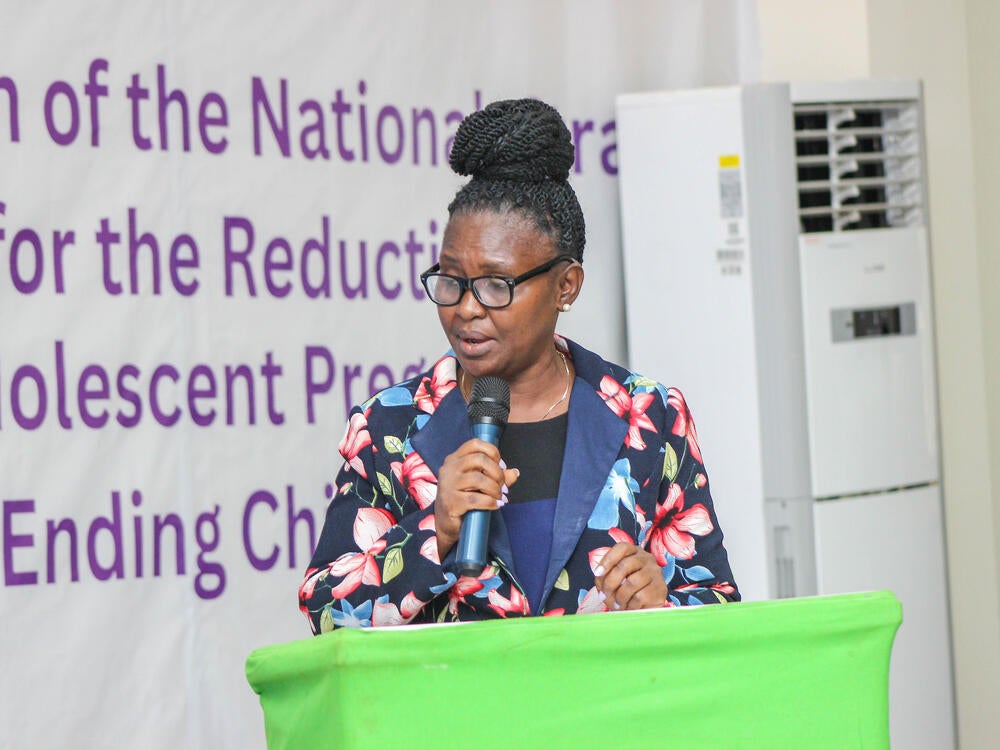
Speaking at the same event, UNFPA Gender and Rights Specialist Betty Alpha noted that the new strategy allows stakeholders to implement new and innovative approaches, such as harnessing technology and adopting gender transformative approaches. She emphasized that impactful interventions such as adolescent sexual reproductive health access would be scaled up to ensure that vulnerable adolescent girls have access to comprehensive health services. She furthermore noted that girls and boys would be provided with age-appropriate and culturally relevant information through the roll-out of Child and Adolescent Health and Life Skills.
Deputy Minister for Social Welfare, Mohama Haji-Kella, emphasized that the multi-sectoral approach outlined in the strategy will not only help reduce adolescent pregnancy and child marriage but will also improve the country’s response to other public health challenges, such as fistula reduction.
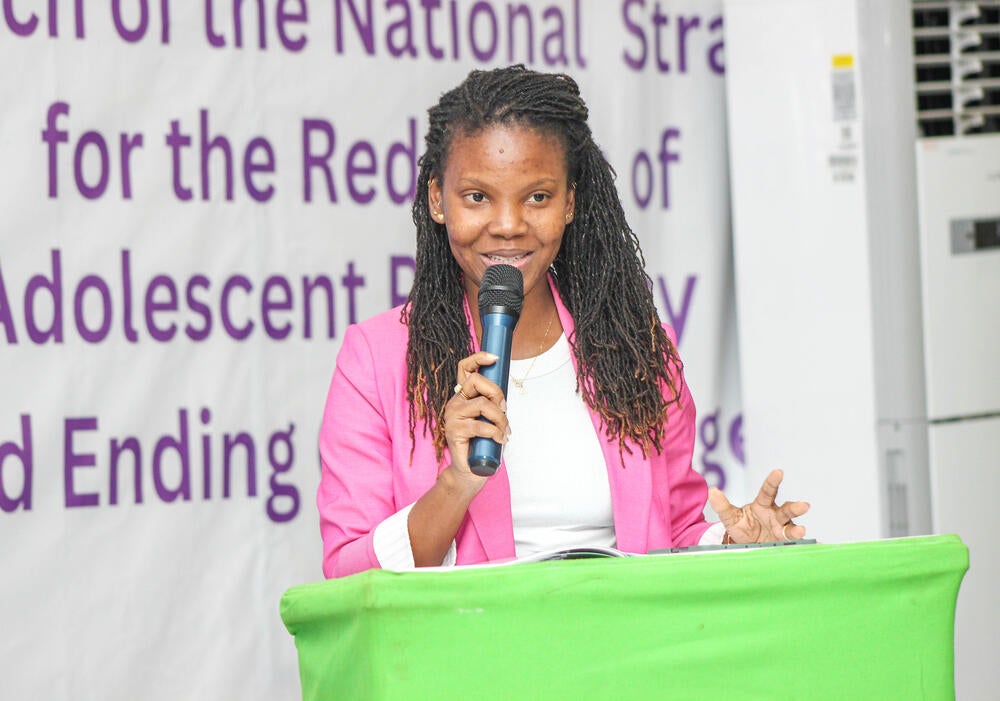
Deputy Minister of Health 2, Dr. Jalikatu Mustapha, stressed the importance of collective action in addressing adolescent pregnancy and called for the abandonment of harmful practices such as gender-based violence.
UNICEF Deputy Representative, Alpha Cisse, described the launch of the strategy as a crucial step toward protecting the rights and well-being of adolescent girls, who make up 12% of Sierra Leone’s population.
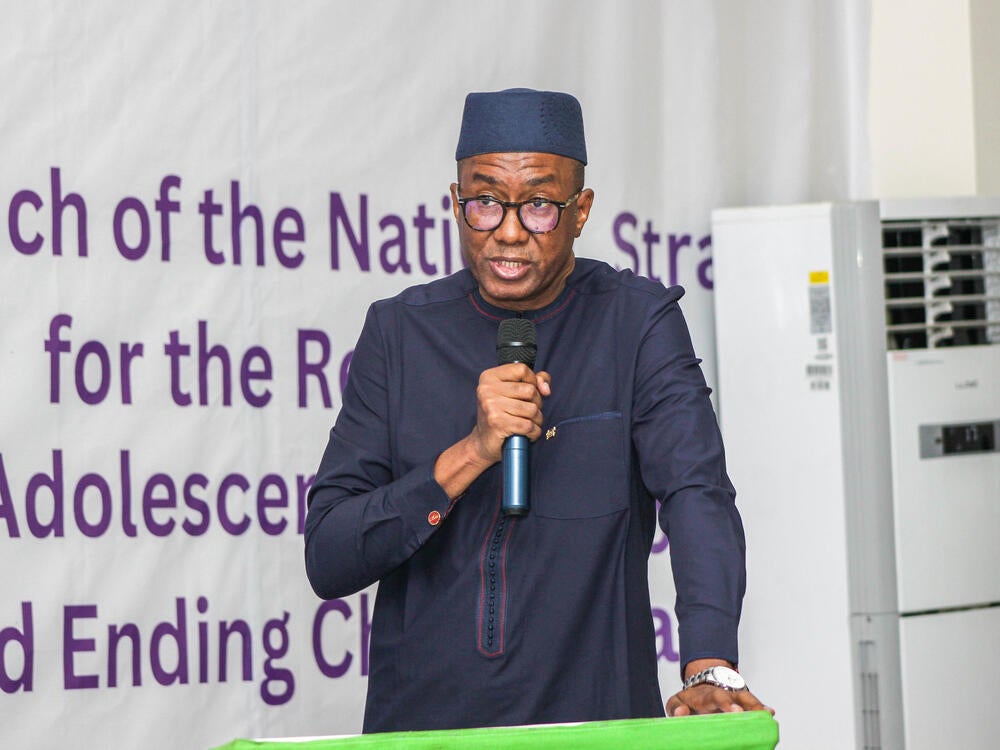
The Strategy will be implemented through a multi-sectoral approach under the coordination of the National Secretariat for the Reduction of Teenage Pregnancy and Child Marriage. Key line ministries in the implementation of the strategy will include the Ministry of Health, the Ministry of Basic and Senior Secondary Education, the Ministry of Gender and Children's Affairs, the Ministry of Social Welfare, the Ministry of Youth Affairs, and the Ministry of Local Government and Rural Development.
